| Article ID | Journal | Published Year | Pages | File Type |
|---|---|---|---|---|
| 2011478 | Pharmacological Reports | 2009 | 8 Pages |
Escin has been used extensively to treat chronic venous insufficiency, hemorrhoids, and edema resulting from cerebral ischemic damage, trauma or operation. However, no studies have looked at the anti-inflammatory properties of escin administered by intravenous injection, and it is still not clear whether escin has an effect on the immune system. This study seeks to investigate the time dependent anti-inflammatory properties of escin and its effect on the immune system. The anti-inflammatory effect of escin was observed in carrageenan-induced paw edema and acetic acid-induced capillary permeability in mice. The immunopharmacological effects of escin were evaluated by spleen index (SI), thymus index (TI), proliferative capacity of splenocytes (PS), lymphocyte count (LC), serum TNF-α levels, and phagocytic rate (PR) in mice. Escin treatment showed a significant anti-inflammatory effect, similar to that seen with dexamethasone treatment. However, the duration of the anti-inflammatory response was longer with escin treatment than with dexamethasone treatment. The results also demonstrated that escin had no significant effects on SI, TI, LC, PS, TNF-α levels, and PR. The findings suggest that escin is a potent anti-inflammatory drug with long-lasting anti-inflammatory effects and without any immunosuppressive effects.
